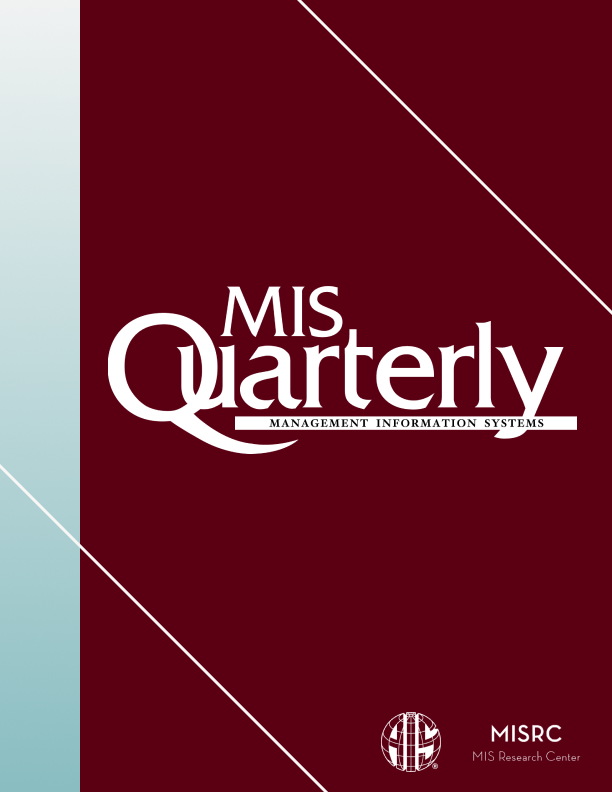Skin in the Game: The Transformational Potential of Decentralized Autonomous Organizations
IF 7
2区 管理学
Q1 COMPUTER SCIENCE, INFORMATION SYSTEMS
引用次数: 0
Abstract
Decentralized autonomous organizations (DAOs)—collectively owned human-machine systems deployed on a blockchain that self-govern through smart contracts and the voluntary contributions of autonomous community members—exhibit the potential to facilitate collective action in managing digital commons. Yet the promise of decentralization and collective action is difficult to sustain. To this end, this paper critically examines the transformational potential of DAOs in the case of decentralized finance. Using a polycentric governance lens, we contribute to the literature on technology-enabled forms of organizing with a model explaining the transformational potential of DAOs to facilitate collective action in digital commons. Our study highlights that (1) DAOs are a new form of organizing enabled by blockchain technology in which individuals are free to pursue their objectives within a general system of rules enforced by smart contracts, (2) collective action for managing digital commons can be sustained through a set of three mechanisms—sustained participation, collective direction, and scaled organizing, and (3) DAOs tend to strike a balance between centralized and fully decentralized or community-based governance by implementing a polycentric governance system involving a combination of human and machine agency that creates skin in the game.亲身参与游戏:权力下放型自治组织的转型潜力
#html-body [data-pb-style=GXH662Y]{justify-content:flex-start;display:flex;flex-direction:column;background-position:left top;background-size:cover;background-repeat:no-repeat;background-attachment:scroll}去中心化自治组织(DAOs)--部署在区块链上的集体所有的人机系统,通过智能合约和自治社区成员的自愿贡献进行自我管理--展示了促进集体行动管理数字公域的潜力。然而,去中心化和集体行动的承诺很难持久。为此,本文以去中心化金融为例,批判性地研究了 DAOs 的变革潜力。利用多中心治理视角,我们通过一个模型解释了 DAO 在促进数字公地集体行动方面的转型潜力,为有关技术驱动的组织形式的文献做出了贡献。我们的研究强调:(1) DAO 是区块链技术促成的一种新的组织形式,在这种组织形式中,个人可以在智能合约执行的通用规则体系内自由追求自己的目标;(2) 管理数字公域的集体行动可以通过一系列三种机制来维持--持续参与、集体指导和规模化组织;(3) DAO 倾向于通过实施多中心治理系统,在中心化治理和完全去中心化治理或基于社区的治理之间取得平衡,这种多中心治理系统涉及人类和机器机构的结合,从而在游戏中创造出利益。
本文章由计算机程序翻译,如有差异,请以英文原文为准。
求助全文
约1分钟内获得全文
求助全文
来源期刊

Mis Quarterly
工程技术-计算机:信息系统
CiteScore
13.30
自引率
4.10%
发文量
36
审稿时长
6-12 weeks
期刊介绍:
Journal Name: MIS Quarterly
Editorial Objective:
The editorial objective of MIS Quarterly is focused on:
Enhancing and communicating knowledge related to:
Development of IT-based services
Management of IT resources
Use, impact, and economics of IT with managerial, organizational, and societal implications
Addressing professional issues affecting the Information Systems (IS) field as a whole
Key Focus Areas:
Development of IT-based services
Management of IT resources
Use, impact, and economics of IT with managerial, organizational, and societal implications
Professional issues affecting the IS field as a whole
 求助内容:
求助内容: 应助结果提醒方式:
应助结果提醒方式:


